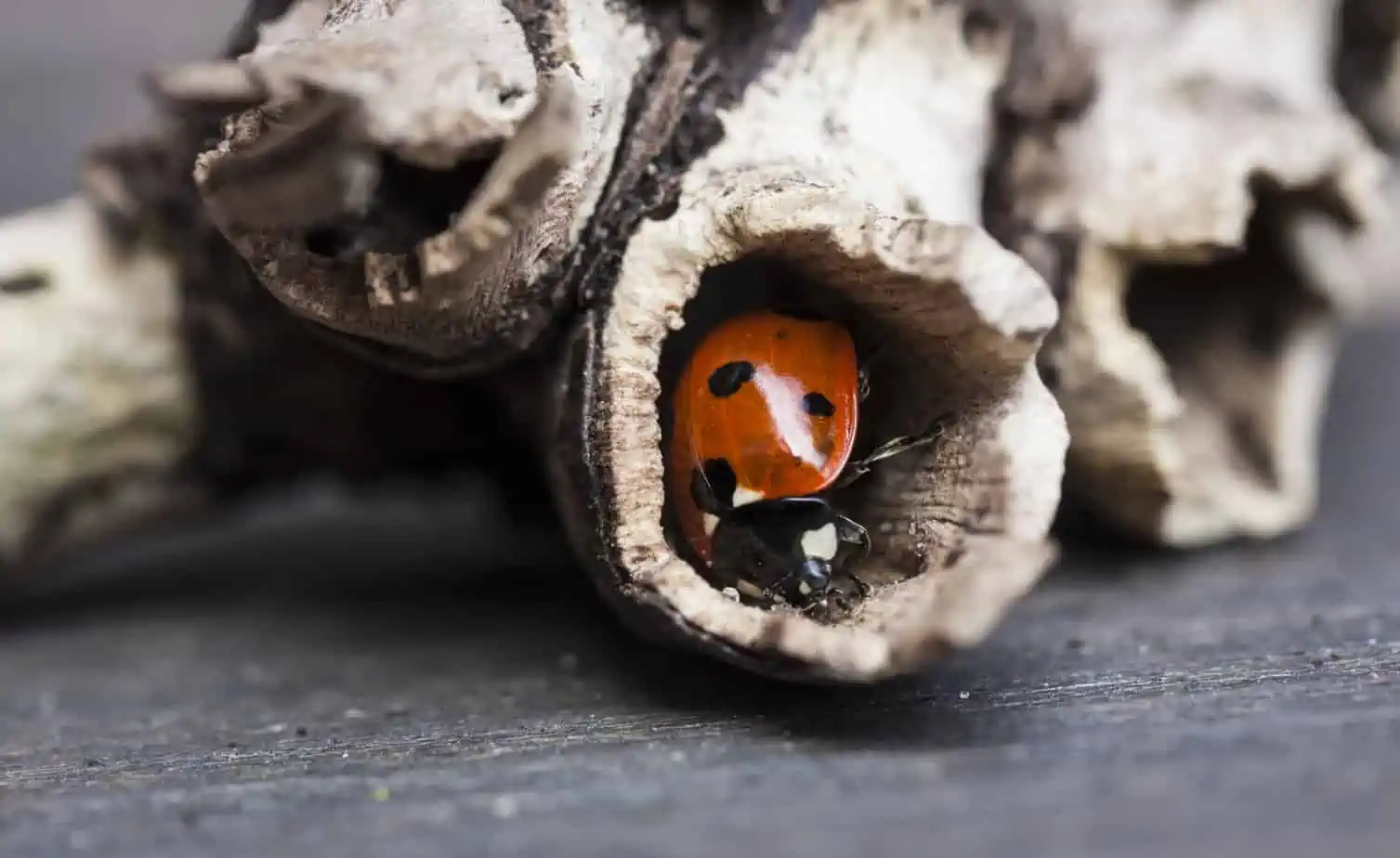Clutter helps insects hibernate
Insects need places to hide, burrow and wrap up to get through the cold season. Cleared up and cleared out areas are a disaster for them. When winter approaches, golf courses like to clean up everything once again and pick up loose wood and branches. At the same time, insect experts warn against too much order in the area of fauna on the golf course – a little bit of disorder namely ensures the survival of dragonflies and beetles, butterflies and caterpillars. They all may have chosen a golf course as their habitat and plan to spend the winter there. If all meadows are mowed down, all water surfaces are cleared of plant stems, and possibly even the deadwood piles are removed, the winter quarters of insects dwindle.
Leave 20 percent plants
“Ideally, you should leave ten to 20 percent of the area standing over the winter, although the area should be a different one each year,” says Sabine Tappertzhofen of the German Society for the Protection of Birds, explaining the best approach. She consults with numerous other colleagues, golf facilities, gives tips on the optimal combination of golf & nature measures beyond fairways and greens.
Deadwood, she explains, is extremely important for butterflies, for example, which often hatch in frost-free, moist tree cavities. The increase in cell sap concentration prevents freezing in them. Large piles of deadwood provide them with the necessary moisture.
While beetles often overwinter in the ground, dragonflies usually survive the cold season as eggs or larvae in hibernation. Here, the plants of lakes and watering places on golf courses play an important part. The eggs are laid in their culms, so that the winter quarters are secured. Therefore, golf course operators who leave ponds in their natural state over the winter protect the species and ensure their continued existence.
Clean bird boxes before winter
When it comes to nest boxes, however, “clutter” is the wrong approach. Here, the opposite is true: the nest boxes, which were inhabited over the summer, urgently need to be cleaned. Mites, ticks or other parasites have usually spread here in the past months. If the nest boxes are occupied again the next year, the parasites endanger the brood.
However, classic cleaning agents or even chemicals are a no-go. If you clean a nest box, simply sweep it out and, if it is really dirty, still take clear water to help. That’s enough. The only important thing is that the nesting box can also dry afterwards. Otherwise, the wood will rot – and be avoided by birds as a nesting site in the spring of 2024.







